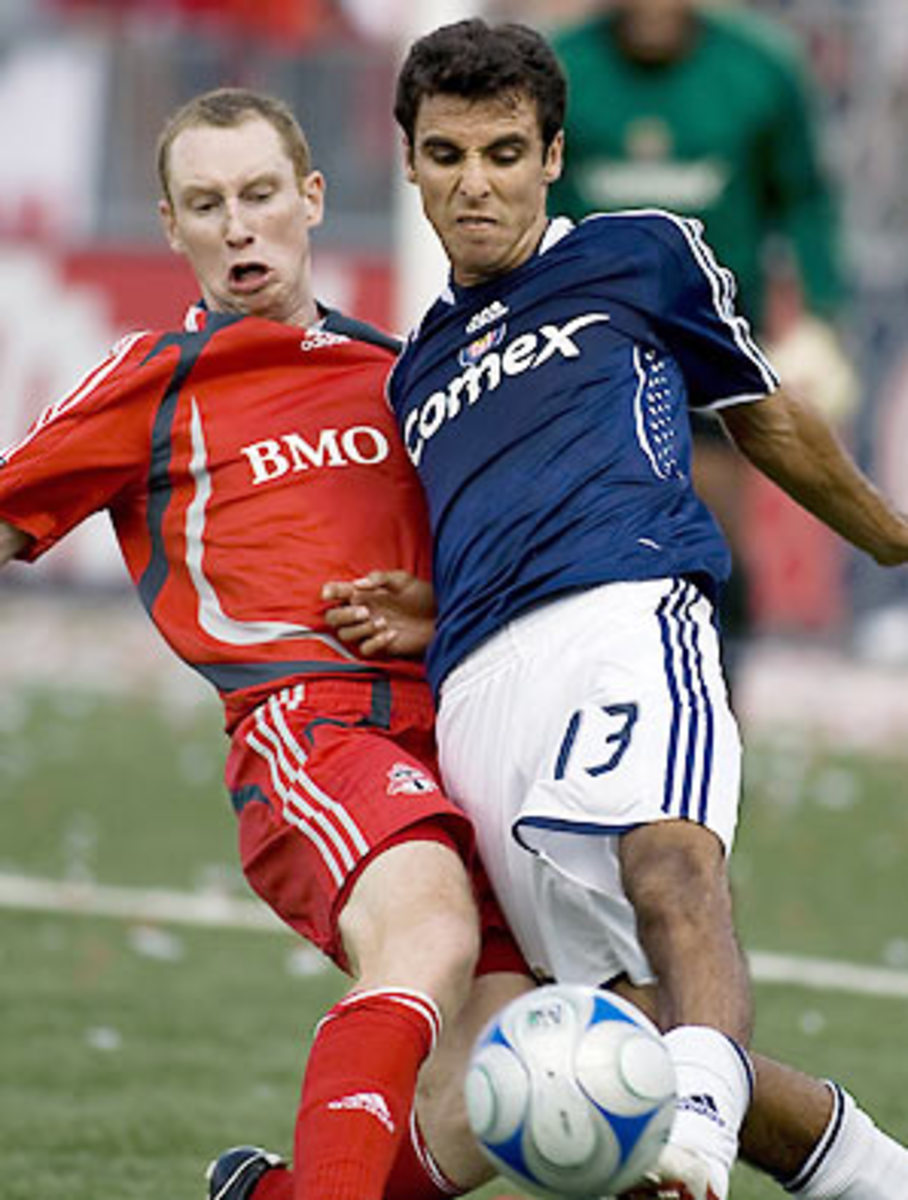
MLS bites more than it can chew
Either the album or the film version would do. League officials always said the right thing about lightening up the schedule during World Cups or international fixture dates, but nobody ever noticed much difference.
Like producers did last year in remastering and remixing audio and video versions of the 1976 Zep productions, the league has to release a cleaner and crisper method of conducting its regular season. This song has to change.
There isn't any alternative or excuse any more. When 32 MLS players miss games last weekend to play for their national teams, and Toronto FC is signing a USL player (Diaz Kambere), a former MLS/USL fringe player (Rick Titus) and one of its scouts (Tim Regan, formerly of the MetroStars and Chivas USA) just to get through a game, the league's stubbornness has morphed into embarrassment.
MLS can't possibly believe operator-investors who are plunging hundreds of millions of dollars into teams, stadiums and league infrastructure will sit quietly as rookies, teenagers and short-term loanees take the field with precious points at stake. The fans are fed up, too.
D.C. United operator-investor William Chang, whose business empire is based in San Francisco, attended D.C.'s 2-1 loss to San Jose on Saturday night. Injuries had decimated his team, but one absence -- captain and playmaker JaimeMoreno -- was due to an international call-up. Moreno wasn't even named to the Bolivian squad of 18 that lost to Ecuador, 3-1, in Quito.
Chang attends D.C. games frequently and occasionally shows up at events like last summer's CONCACAF Gold Cup final in Chicago. He knows and understands the FIFA regulations regarding players summoned to play for their countries. A coach's decision or injury can knock a player out of an important national-team game. But should such commitments significantly affect the playoff chase?
This year Houston, Chivas USA, New England and D.C. United played fewer league matches in July to accommodate SuperLiga games, and that forced Houston and D.C., which received byes into the group phase of the CONCACAF Champions League, to play more league games in August to free up dates for another heavy load of midweek CCL games in September and October.
Had New England and Chivas USA advanced out of the CCL preliminary round, they'd have been in the same boat -- and don't think the prospect of six more games and additional travel, fatigue, etc., didn't factor into how those teams approached their meetings with Joe Public FC and Tauro FC, respectively.
Next year is the busiest ever. The U.S. will compete in the FIFA Confederations Cup (June 14-29) and the Gold Cup (July 3-26). Teams are obligated to release players for both competitions, and how U.S. coach Bob Bradley can possibly field strong squads composed of European-based and domestic players for both competitions is beyond me.
The FIFA windows for competitive matches are: March 28-April 1; June 6-10; Sept. 5-9; Oct. 10-14; and Nov. 14-18. Any way you do the math, it doesn't add up and there are no perfect solutions -- only tough compromises.
MLS commissioner Don Garber has suggested an earlier start to the regular season, perhaps mid-March, to alleviate some of the congestion. Some pundits have suggested MLS could cut down the number of games per team from 30 to 28 -- each of the 15 teams would play each league opponent twice -- to free up more dates. A shorter playoff schedule could cut one week from the postseason.
The league will conduct extensive discussions with U.S. Soccer and CONCACAF to address the staggering number of friendlies, World Cup qualifiers, U.S. Open Cup matches and two editions ('08-09 and '09-10) of Champions League games that need to be staged in the '09 calendar year.
Yet the presence of a 15th team -- Seattle -- will offset a reduction in the number of MLS games, since one team must be left out of each round. Also, the total number of games wouldn't change.
Fourteen teams each playing 30 games equals a 210-game schedule. Fifteen teams playing 28 games also equals 210 games. And because of the 15th team, more match days would be required to play the same number of games.
So, what to do? MLS has to alter the course it took this year by shifting other schedules to accommodate SuperLiga. It can sprinkle those games midweek during a portion of the league schedule, or convert to a knockout tournament, or drop its mano-a-mano contrivance altogether.
This year, it sacrificed some weekend dates to play SuperLiga matches instead of league games. But MLS isn't nearly strong enough at the gate to blow off Saturday night league action so its teams can host Atlante, Pachuca or Santos Laguna.
There's no other way to accommodate the FIFA windows, at least two or three of them, if not the entire allotment of five. MLS can't ditch the U.S. Open Cup, and would be committing political suicide by shunning the Champions League which, in any case, is a far truer test of just how good are MLS teams compared to their Mexican, Central American and Caribbean counterparts.
If something has to go, it has to be SuperLiga.




